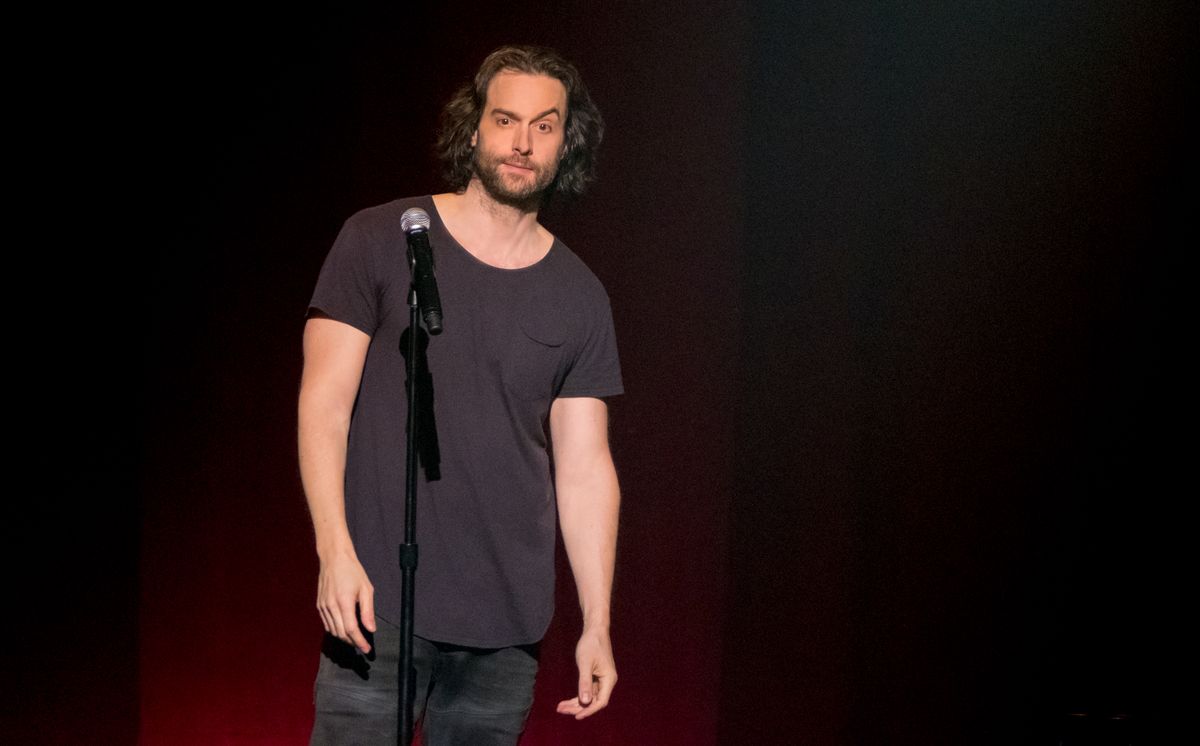Who Else?
A few obvious thoughts about Chris D'Elia.

CW: Sexual abuse, predatory behavior, grooming.
One way to look at comedy is as the art of asking, “If this is true, then what else is true?” This simple question offers a footpath from premise to punchline, first beat to second—a key that unlocks the full imaginative promise of the human mind. But why should comedians get all the fun? We civilians can ask it too. Here’s an example: If droves of young women say a famous comedian groomed, harassed, and/or assaulted them as he traveled the country performing comedy, then what else is true?
One answer is that people must have noticed. Maybe his friends observed his penchant for messaging female fans. Maybe they saw that he habitually pursues young women. Maybe a bartender or club manager or bouncer looked on as he brought someone to the green room—or left her there. Maybe that same bartender or manager or bouncer watched his buddy slip something into a drink. Abuse on this scale does not happen in a vacuum. Someone has to look before they can look away.
We will soon see an interesting bifurcation in the response by comedians to the Chris D’Elia story. On the one hand people close to him will say they had no idea. (Neal Brennan already said as much in a deleted tweet on Wednesday.) On the other will be those who say how obvious it was, how funny that it’s always the ones you most expect. Both groups are loudly declaring their failure to ask the question it is their job to ask. If this, then what?
Let us imagine D’Elia’s friends are being honest when they proclaim shock at the revelation he preyed on teenage girls. How can that be? They knew what kind of guy he is. They joked about it openly. He gave them all the clues. To say they had no idea is to say they never thought twice about those clues. Might A lead to B, or even C? No, certainly not. Nothing to see here! Just a normal guy doing normal things, which are normal to me, a man in comedy.
This is not really so different than the opposing response. Ah, so it comes as no surprise that a popular man in your industry roamed the country leveraging his fame to abuse children? Sure, sure. So, just checking: what exactly were you doing all this time such a horrifying thing seemed perfectly plausible? What are you going to do now?
I must confess I’m feeling a little crazy. Was a monster not outed this week? Is this not earth-shattering news? Is it not a huge emergency that the entire business of comedy is structured to enable a predator any idiot can see is a predator? Who around him had all the clues and refused to put them together? Who put them together and wasn’t listened to, or didn’t care? If it’s so easy for an obvious abuser to get away with it, what does that tell us about the subtle ones?
It is often remarked that there is no HR department in comedy. Comedians love to respond to outside criticism by calling for their peers to police each other. So far they’ve done such an atrocious job that it fell to D’Elia’s hundreds of victims to expose him. No one should accept this. The industry has failed again and again to respond to revelations of abuse with anything approaching systemic reform, or even an internal audit. How much is enough?
Chris D’Elia’s crimes deserve a full reckoning. We should not rush past it on our way to the broader one. But that broader reckoning must happen too, and it can begin with a very easy question, one everyone in comedy is trained to ask. If someone as brazen as D’Elia could get away with so much for so long, who else is still out there?
Header image via Netflix.


